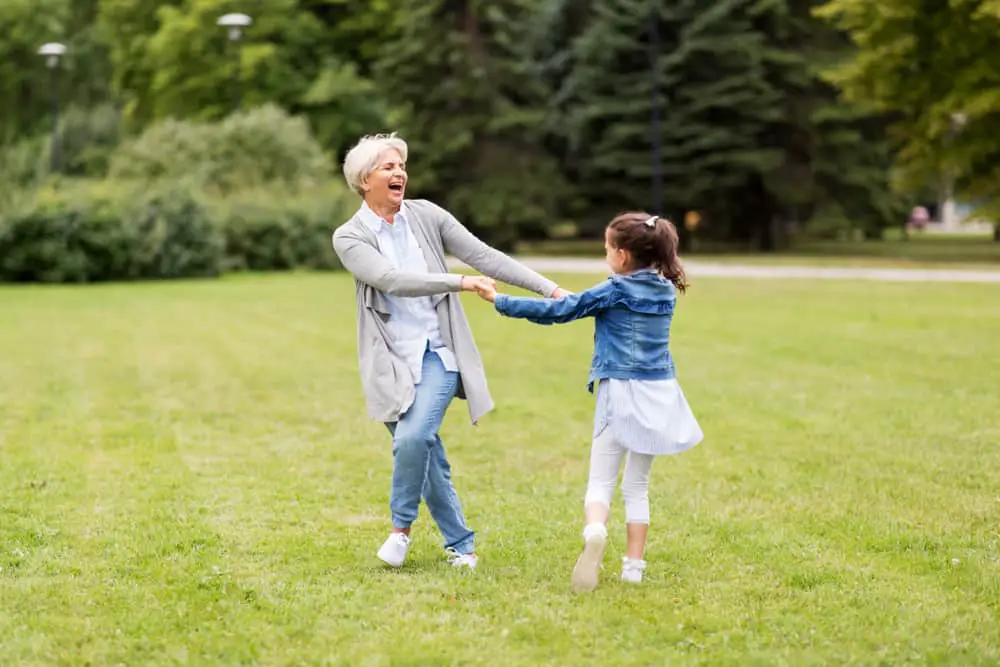If you search for keywords for seniors as “friends with benefits” you’re met with “7 senior discounts at Walmart” or “benefits for seniors 65 and older.” I am not seeking the usual interpretation for “friends with benefits” nor am I referencing the discounts and commercial advantages available to seniors. I want to discuss the benefits of friendship with people of all generations…focusing on seniors being friends with benefits. Can seniors be friends with benefits? Of course they can.
Why Are Seniors Friends with Benefits?
- Mentoring. Seniors are walking encyclopedias of life experience and knowledge. What they have lived and learned can be shared with younger generations. Seniors can be teachers and guides in many fields of expertise whether it be business, academics, recreation, the arts, or science. They have been there and done that. They know the pitfalls and can advise on what to avoid.
- Mentoring can take on a life of its own with those who were mentored, now wanting to pay it forward. The mentees become mentors themselves, passing it on, completing the circle, and improving society.
- Wisdom. Seniors can impart wisdom learned over their lifetimes. Wisdom comes from attending the school of hard knocks over a lifetime. Younger generations can avail themselves of wisdom learned the hard way without having to endure the adversity.
- No appetite for drama. Senior citizens want to enjoy what life has to offer and avoid unnecessary conflict.
- Community needs seniors. A community can and should embrace all ages, cross-generationally to make for a rich mosaic. Here is one example of just such a mosaic:
Cross-generational friendships Are Less Likely to be Competitive
When you have friends a decade or so younger or older, there is less likelihood of comparisonitis. It’s common to compare your life to that of your peer group and sometimes feel less fortunate. It also happens that comparison can lead to some conceit about your own accomplishments in life. Intergenerational relationships by their very nature discourage feelings of competitiveness. Seniors are more focused on happiness. They’ve lost the competitive drive of a younger demographic working to establish a career and start a family. Most seniors just want to smell the roses.
Another plus for cross-generational involvement, especially with children is outlined in this study.
Those seniors at risk for cognitive decline who engage with children see improved brain function. So you can volunteer, have fun with a younger generation, be inspired, and improve your brain function all at the same time.
Intergenerational Relationships Challenge Ageism Thereby Reducing Loneliness
One of the conditions afflicting the elderly is social exclusion and the resulting loneliness. Once we realize that we are all the same and have universal needs, even though at different stages in our lives, the stereotype of the irrelevant elderly person can be dispelled. Engaging with a senior as a real person is key to reducing ageism.
Age discrimination is isolating and contributes to the current epidemic of loneliness. According to AARP, 1/3 of US adults age 45 and older feel lonely. The population of lonely people over 45 has grown from 42.6 to 47.8 million.
Loneliness affects us physiologically and can be as harmful as smoking 15 cigarettes a day. It can result in a 60% increased risk of functional decline as well as a 45% greater risk of death. Simple social activity can address those hazards without the use of drugs or other therapeutic interventions.
Actively engaged seniors report less depression, better physical health, and more optimism about their future. They are making a contribution. They feel heard and relevant rather than sidelined due to their biological age.
It’s time we recognized that seniors can be friends with benefits and that they can still be contributors to society in spite of their years. Here is yet another example:
How Do We Change the Attitude That Seniors Can’t Be Friends With Benefits?
Even though friendships naturally evolve with our peers, we fail to appreciate that with our neighbors and kin, we form relationships that are intergenerational and think nothing of it.
Nevertheless, there are programs whose goal is to change general societal attitudes toward befriending the elderly by introducing children to their elders. In 1988 an intergenerational Community Program was founded in Phoenix Arizona partnering schools and nursing homes. Although funding was and continues to be a challenge, the benefits of children visiting nursing home residents became evident.
Visits were based upon seniors and children engaging in “cooperative” activities rather than the children staging performances. Elderly residents were uplifted, energized, and found their mojo during those encounters. Even the nursing home residents who were usually disoriented somehow knew the day the children would arrive and were eager to participate in their visits. When the summer holidays began, several children continued to visit their elderly friends and brought a family member with them. This, in turn further broadened ties to the surrounding community.
Children discovered that older individuals are “just people.”
Children developed an understanding of our life cycle, the end of that cycle, and seemed to accept it.
One parent commented: “Bevin is comfortable with elderly and disabled residents. She feels she knows them as individuals–she sees a person, not just a chair or a bed. She loves the opportunity to be with older people and she is more sensitive to her grandparents’ problems when she is with them.”
One child remarked: “I have started to notice and treat the elderly better than I used to. Now I understand that the elderly enjoy company just as much as we do.”
Another commented: “The visits have been fun and a new experience. Now we know that old people do things too. Sometimes they can be sad, but they are mostly fun.”
The stereotyping of senior citizens as vulnerable, frail, and needing care has resulted in their segregation from the rest of society. Aging does result in some physiological vulnerabilities but not all seniors comply with that stereotype. While approximately 7% live in residential care or nursing homes, others of the same biological age are still working and contributing to society. It is not a one-size-fits-all situation. In fact, over 90% of older adults in Canada still live in their communities.
What is the purpose of encouraging intergenerational association and seeing seniors as potential friends with benefits? It counters mischaracterizing our elders and the resulting ageism which characterizes them as different – or separate members of society – and treating them that way.

